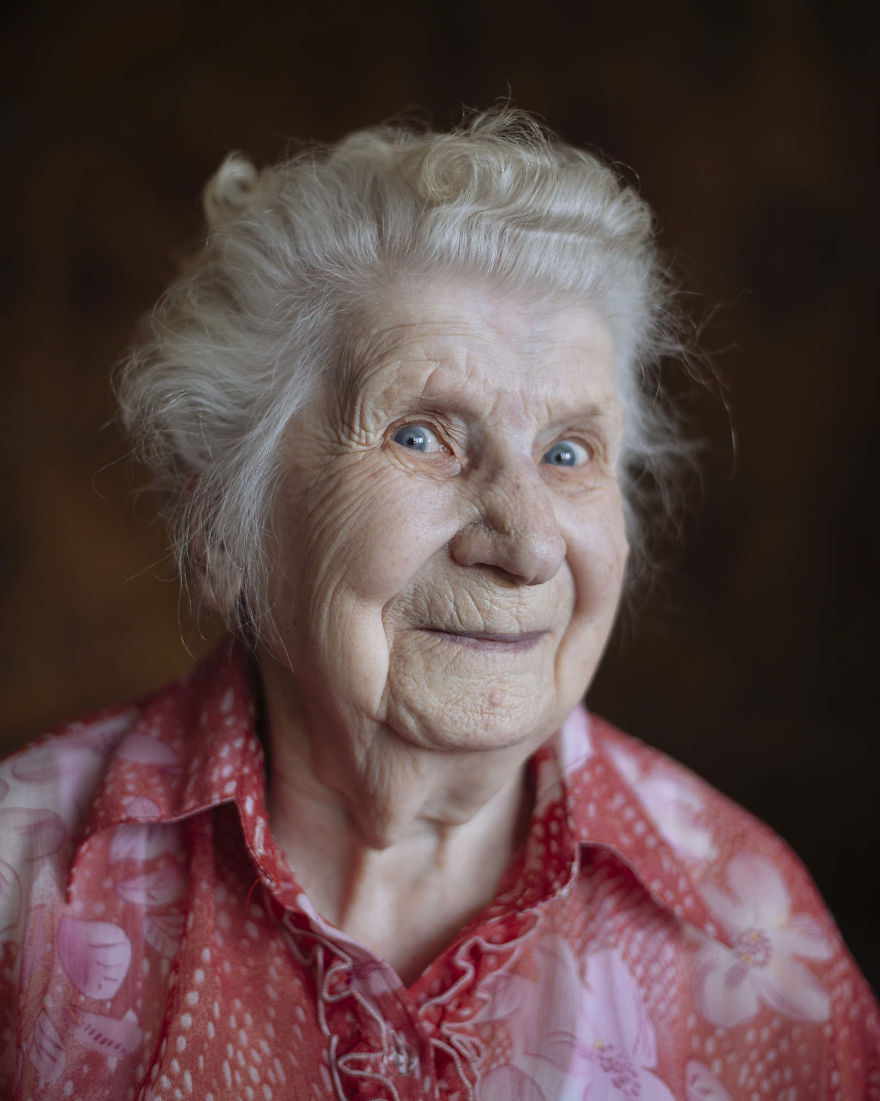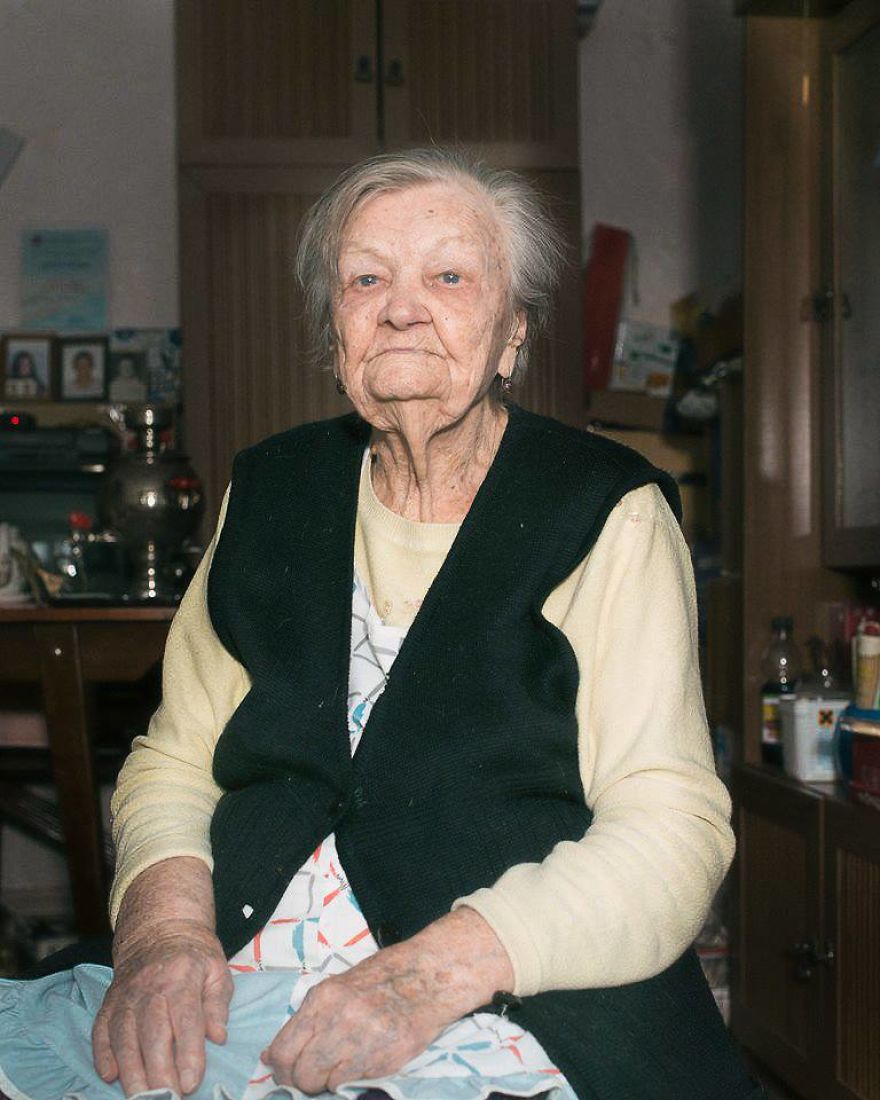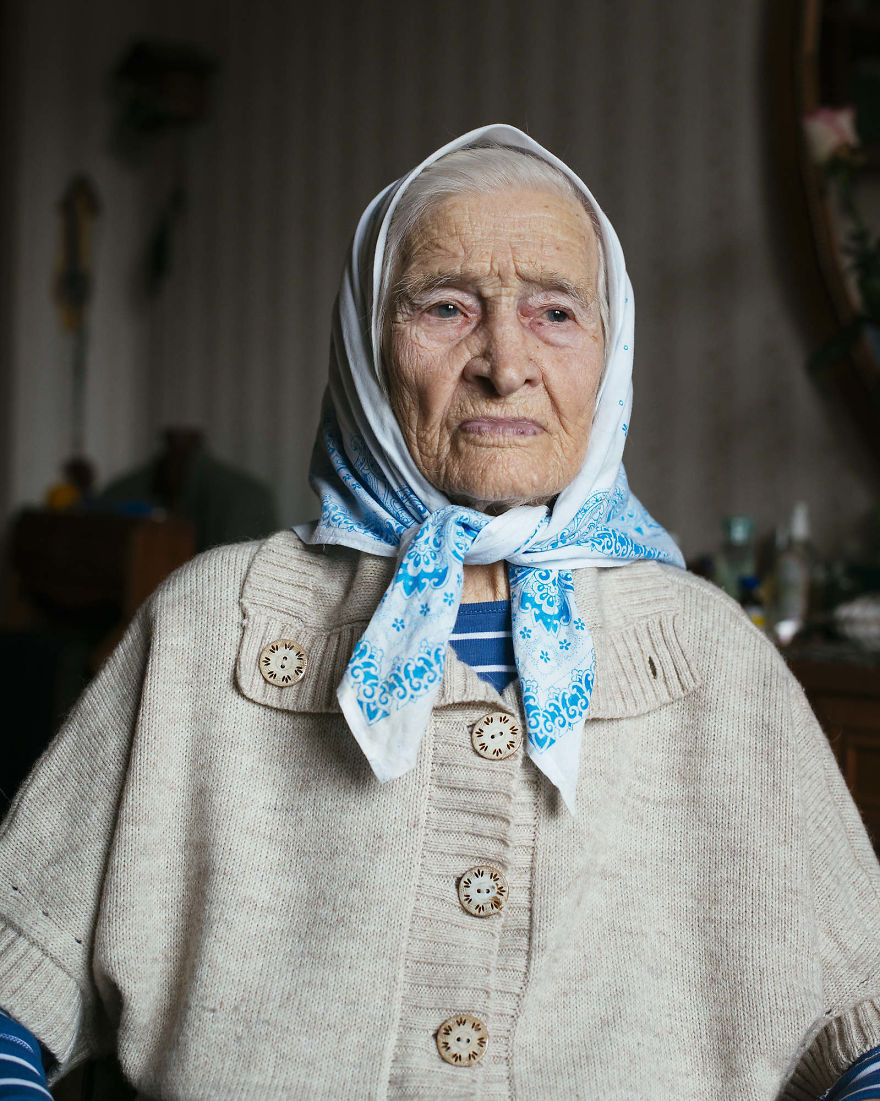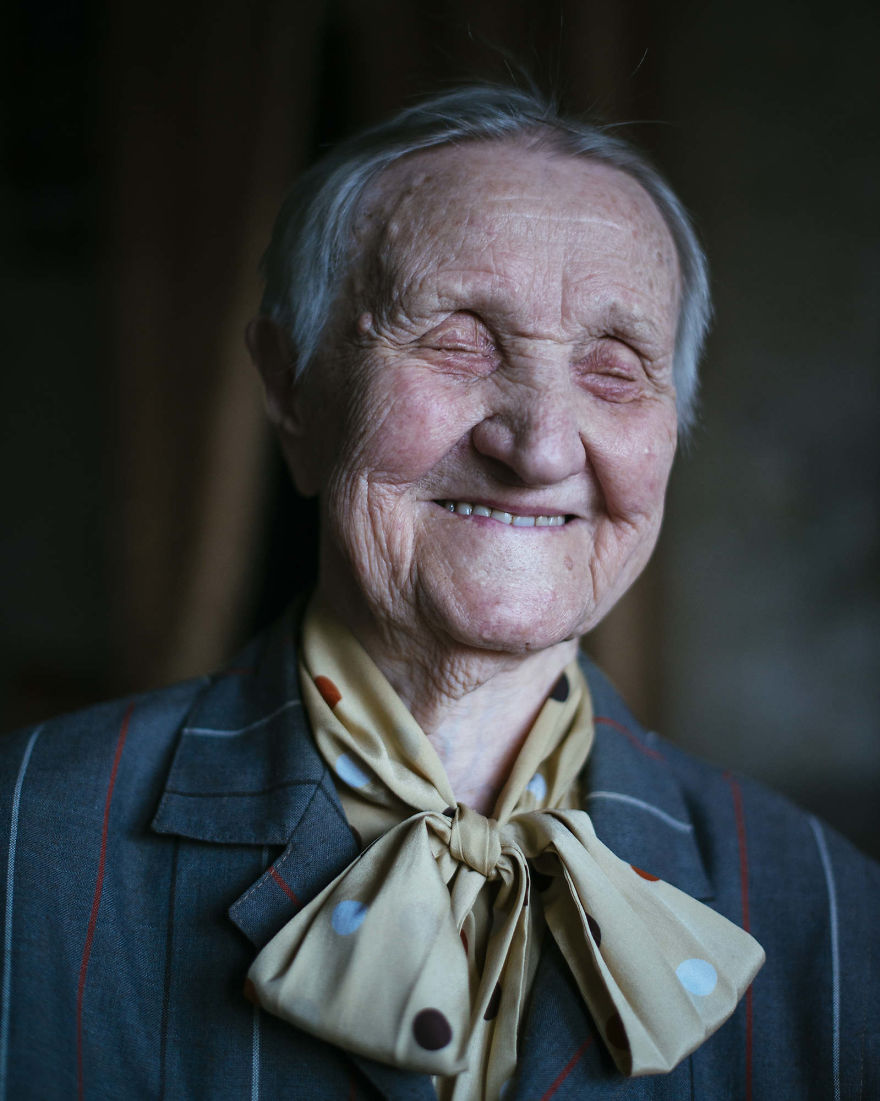
We Met Four Russian Centenarians And You Should Hear Their Stories
One hundred years ago, in 1917, Russia was wracked by revolution, famine, foreign war, and domestic unrest. Indeed, the events that unfolded in Russia that year changed the course of twentieth-century history.
And yet, throughout 1917, babies were born, lives were started. Meet four such “children of 1917,” who are now inspiring, 100-year-old women. They are part of a book+film project myself and Russian photojournalist Mikhail Mordasov are working on this year, called “The Children of 1917.”
More info: kickstarter.com
This is Alexandra Nikolayevna Antonova
She was born in 1917 in Petersburg gubernia, into the family of a railroad worker. She was not even one year old when her mother died, thankfully not living to see her two older daughters die from typhus. The Civil War began, and taking care of the family’s four children fell squarely on the shoulders of Alexandra’s father. “Papa gave us security, he did a very good job of keeping us in clothes and shoes, was a good cook, and always celebrated holidays,” Alexandra recalls. It was about that time that the village, caught up in the Civil War, began to change its name. It was either Strugi Beliye (White Strugi) or Strugi Krasnie (Red Strugi), depending on who was controlling it.
This is Antonina Alexandrovna Kusleyeva
She war born in 1917, in Bashkiria, into a large and prosperous family, which had a forge, cattle and workhorses. Her grandfather built a church in the village where he was born (it stands to this day). After the Revolution, the entire village was labeled kulaks (rich peasants) and sent to Siberia, in winter. “They drove us into the forest and just left us there. ‘Get by however you like,’ they said. And they made dugouts in the earth and wintered over there. My aunt went around begging for handouts.” Antonina herself avoided such a fate. She and her mother succeeded in escaping the village.
This is Tatyana Semyonova Orlova
She was born in a small village just a few dozen kilometers from the place where the Volga River begins. Her father was a blacksmith, had four years of education, and was a respected person in the village. In order to survive, the Orlov family and their fellow villagers had to create secret land plots in the forest and hide their grain crops, because the commissars kept coming around and taking all their grain for the wider country’s needs. “I did not have life,” Orlova says, “I had labor.”
This is Maria Nikolaevna Ryabtsova
She was born in 1917 in Yaroslavl Oblast. She is rather unwilling to talk about her century of life. “Mama and papa were peasants, they ploughed the land, rode on horses. I finished five years of school and went to work. Mama said, ‘You need to work and not study.’ It was a difficult life. Now I lie alone at night and recall my life, all of it.” She tries to do as much as she can on her own and not rely on relatives. As a matter of principle, she does her own cooking from groceries she buys on her pension allotment.
Meet these beautiful ladies again on this short video…
2Kviews
Share on FacebookA good project, Paul. How apposite, in these times. I wish you the best. Russia never seemed to heal. The evil just seemed to change hands over and over again. May these voices turn history around, finally.
A good project, Paul. How apposite, in these times. I wish you the best. Russia never seemed to heal. The evil just seemed to change hands over and over again. May these voices turn history around, finally.

 Dark Mode
Dark Mode 

 No fees, cancel anytime
No fees, cancel anytime 





















































22
2